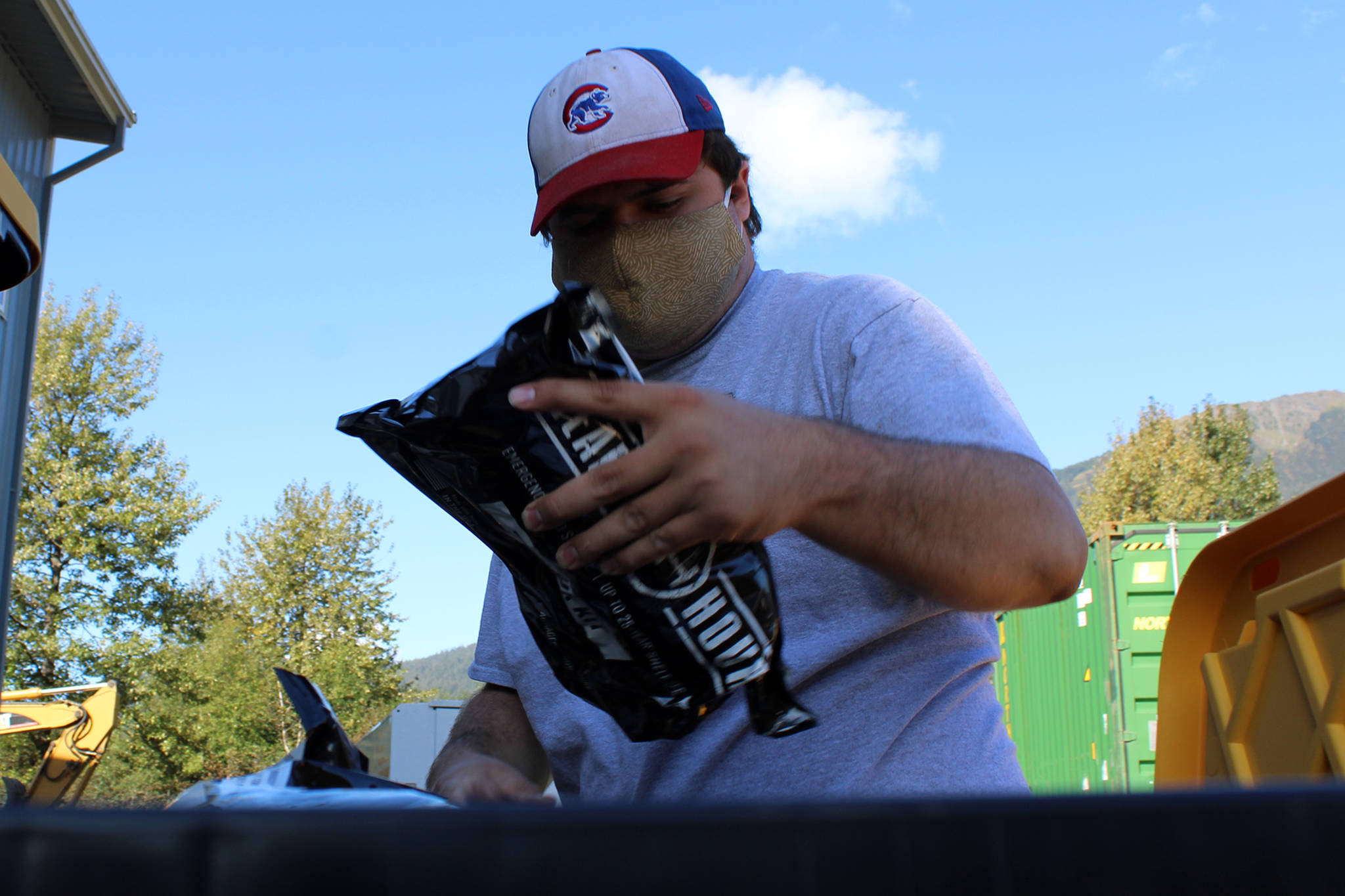As Central Council of Tlingit and Haida Indian Tribes of Alaska continues to ship its COVID-19 care units, they’re not just looking at this disaster, but the next and the one after that.
“With the COVID, we had to ask ourselves, how do we come out of this stronger,” said Tlingit and Haida President Richard Chalyee Éesh Peterson. “Those lessons learned are what’s going to make us stronger and better.”
At the beginning of the coronavirus pandemic, Tlingit and Haida stood up its Tribal Emergency Operations Center to support their communities throughout the Southeast. The COVID care units- 20-foot Conex boxes filled with supplies- have been sent to six communities so far, with 16 more to go, said TEOC incident manager Jason Wilson.
[City offers free flu shots to bolster public health]
“Over the last week and a half, we’ve already delivered to the northern communities, north of Juneau,” Wilson said in a phone interview. “We’re looking at 16 more Conexes. They’re going out on a barge with equipment to help them unload it. Our emergency manager is going to fly out to the communities.”
But Tlingit and Haida has its eyes on the future of crises in the Southeast as well, Wilson said.
“How do we look at taking care of the tribal citizens? I think our leadership has made a commitment through Tlingit and Haida Central Council to continually prepare for this,” Wilson said. “This isn’t the last emergency we’re going to deal with.”
Community prepping
Each Conex contains things like emergency food, generators, water filters, masks, gloves, hand sanitizer, thermometers, rice, and jarring materials- PPE to help mitigate the spread of infectious disease like the coronavirus, and emergency supplies for more physical natural disasters.
“We just saw an earthquake south of Sand Point,” Wilson said. “These are one the things we want to prepare for.”
Reading the Conexes has been a challenge in Juneau from a logistics standpoint as long lead times and delays in shipping the kind of bulk goods going in the containers have created delays, Wilson said.
“It’s been difficult getting stuff into Juneau. Getting things here and delivered has been a challenge. The Conexes that we purchased have been a challenge to get here,” Wilson said. “Making sure everything we say we put in there is in there is not a fast process. We ordered this stuff four months ago and we’re just getting stuff.”
The TEOC is also thinking about back-end support and creating ongoing mechanisms for the communities with things like doing bulk orders for all the communities in the Southeast and looking for grants to help out, Peterson said.
“We’ve had to learn this process. We’ve learned who to work with and who not to work with,” Wilson said. “Being able to assist our communities is really important so we’re not wasting time and wasting valuable resources.”
Tlingit and Haida is committed to being an asset for the communities, Peterson said, using its leverage as a larger organization to expedite bulk orders and to make it easier to get emergency supplies across the Southeast, which can be an inaccessible region of the planet.
All on the same playbook
Enhanced communication, standardization of training, and prior identification of specialists and crisis managers can help ready the Southeast for any kind of calamity.
“Our goal is to have that network and have those folks identified if there’s a fire, if there’s a tsunami,” Peterson said. “Last winter, let’s face it, we had no ferry access. That’s its own form of disaster.”
“We’re going into the communities at the request of the communities,” Wilson said. “For us, for our Tribal emergency operations center, we were enacted as a Tribal EOC because of COVID. We are learning so much because of this process.”
Wilson said that a lot of the knowledge is how to work with various emergency and public health organizations like the CDC and EOC. With that knowledge, they’re able to modify their own best practices, and to pass that onto other communities. One of the TEOC’s emergency managers will be flying to each community to get community authorities spun up on how to use the equipment in their Conex.
“The Conex isn’t just about preparing for COVID, but getting them thinking about other emergencies,” Wilson said. “We want to be able to assist any community that wants assistance. We want to get everywhere we need to get and be as fast as possible.”
Peterson said he hopes the standardization of emergency preparedness and equipment across the Southeast will turn the communities in the region into an interlocking network of communities that can provide mutual support for emergencies.
“I think that’s the ultimate goal, having a stronger, united, more prepared community network,” Peterson said. “We know this is an ongoing need. When COVID is gone, we’re not going to stop this or disband this Tribal EOC.”
• Contact reporter Michael S. Lockett at (757) 621-1197 or mlockett@juneauempire.com.

